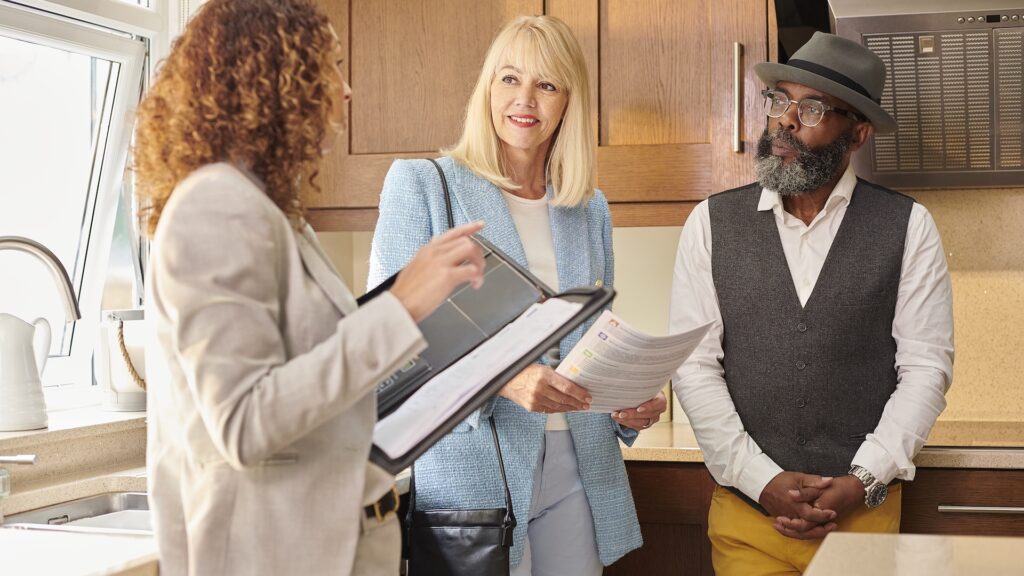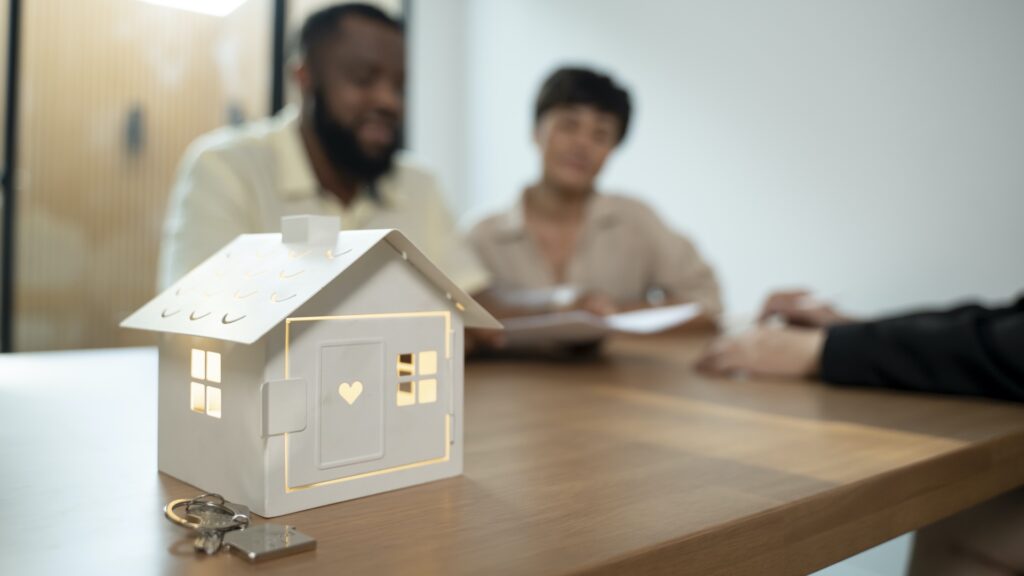While most people think owning your own home is the Australian dream, buying an investment property is also high on the list for plenty of people. In fact, around 2.25 million Australians own a rental property according to data from the Australian Taxation Office.
If you’re strategic about the property, you could end up with rent that covers some or all of a mortgage. Then there are the tax benefits, and the potential increase in property value when you sell it.
Some people even use investment property (or properties) to finance their retirement. But there are also big financial risks to buying an investment property, including lending costs, tenant issues and potential difficulties in selling it.
So before you make any decisions about getting on the investment property ladder, these are the questions you need to ask.

1. Is buying an investment property worth it?
There’s no one-size-fits-all answer to this question because it depends on your personal and financial situation.
If you are in a position to invest, property is typically one of the less volatile options. It’s also an asset you can physically see and touch.
Cate Bakos, co-author of The Buy Right Approach to Property Investing (along with Pete Wargent) has been involved in property purchasing and investing for over 28 years.
She says it can be a good option “if you are looking at building your financial future, you have the required capital to secure a quality product and the cashflow to sustain a negatively geared property, and most of all, you see this as a long term journey.”
2. What are the risks?
Compared to other investments, property can be harder to sell. And there’s no guaranteed return.
The government’s Moneysmart website also states that it has high entry and exit costs, including stamp duty, legal fees and real estate fees.
“Buying, managing and selling an investment property can be costly and will affect your overall return.”
“It’s important to go onto property investing with your eyes wide open,” Cate tells The Australian Women’s Weekly.
“There are risks to becoming a property investor, so it’s important to move forward with a plan and an appreciation of the commitment.”
Some of the key risks Cate warns about include:
- Buying a dud,
- Having to sell a good property due to hardship or limited cashflow,
- A declining market over the long term,
- Hefty maintenance (or strata) costs,
- A troublesome (or non-paying) tenant.
Another big risk comes from using equity from your existing home to finance the investment. In a worst-case scenario, this could mean you lose both your home and the investment property.
“You can minimise your risk by educating yourself on how to buy the right property in the first place. Education is the key, and having a team of property professionals to support you.”
Cate Bakos

3. What is the best age to invest in property?
You can invest in property at any age (if you can afford to) but starting at a young age does mean higher potential returns.
“My first contract was signed at age 21, when I was still working part-time. I’ve now got a 17-year-old daughter at home who has saved more than half of the minimum deposit for her first property,” Cate says.
Her daughter’s story is now a case study in The Buy Right Approach to Property Investing.
“While it seems incongruous that a teen would be thinking about investing, she will enjoy the additional years of capital growth and rental growth,” Cate says.
“By the time many of her contemporaries are buying their first home, she will likely have built enough equity to continue her investing journey at a comparatively young age.”
But a key benefit to investing when you’re older is that you are likely to already have wealth and assets (such as a home). This can help you get the finances you need for an investment property.
If you’re planning to downsize, there’s also the potential to keep your existing home as a rental property and live in something smaller.
Your life experience could also be helpful for asking questions of real estate agents, and even managing the property. Not to mention more years managing tax returns, bills and other financial responsibilities.
4. How much of a deposit do I need?
You can buy an investment property with a deposit of just 5% but that can increase the upfront costs and potential risks.
“In most cases, I’d recommend at least a 10% deposit, although many investors who already own a home will access equity and contribute a 20% deposit via equity plus the stamp duty.
“For those starting out and buying a property as their first home, the First Home Guarantee is an excellent government initiative. In this particular case, places are reasonably limited but I’ve seen many qualify, live in their first home and convert it to an investment in later years as their incomes grow and their needs change.”
5. Should I use my home as equity for an investment property?
While there are risks to using your home to help finance an investment property purchase, it’s a common strategy.
“From a tax deductibility point of view, this makes the most financial sense,” Cate says.
“Many people feel uncomfortable about extending their debt balance against their owner-occupied property, but seeking good advice from a knowledgeable and strategic mortgage broker makes all the difference.”
It’s also important to talk to your partner and family about the decision. Consider your financial situation, possible changes to that and how it could change the level of risk.

6. Is property flipping a good investment?
Most people buy an investment property to rent it out. But another option is to buy a property, renovate it and then put it back on the market – similar to what they do on reality series The Block.
“Flipping requires value-adding at a fraction of the proposed gain. If the value-add is inefficient, or if cost-blowouts occur, an investor can incur a financial loss,” Cate says.
A shortage of tradies in Australia, along with inflation for many of the tools and materials also means costs can get out of hand very quickly.
To put this in perspective, 2024 analysis from Master Builders Australia found that the cost of building materials increased 33.5% and labour costs increased by 12.7% compared to 2019.
Beyond that, Cate says the short time-frames involved in flipping add to your overall costs.
“With stamp duty, agent’s selling fees, marketing and capital gains tax to take into account, these trading costs can quickly erode any profits. Often they amplify losses,” she says.
“If an investor plans to sell and market conditions deteriorate, they could wind up being stuck with a property that is expensive to hold.”
Cate Bakos
7. What’s involved in finding and managing an investment property?
Researching the property market and considering the different financial outcomes are important parts of the process.
“It’s the buying side of the transaction that contributes most to the success of your investment, so finding a good investment in the first place is vital,” Cate says.
This can include:
- Cashflow calculations
- Pricing analysis
- Identifying appropriate properties and markets
- Due diligence (including building and pest inspections)
- Negotiating or bidding for the property
“Clear market analysis and leaning on knowledgeable professionals makes a huge difference,” Cate says.
While managing the investment property happens after you’ve bought it, the sooner you think about it, the better.
“Managing an investment property relies on finding a great property manager,” Cate says.
“Asking around, checking property forums, and interviewing the property manager thoroughly is essential. And like most good things, don’t expect the best to be cheap… Remember that value is what counts when it comes to managing your [investment property].”
The other thing to remember is to ask a lot of questions, especially if it’s your first investment property. This will help you learn more and get the details you need to make an informed decision.
*This article takes general advice from ASIC’s Moneysmart website and property expert and author Cate Bakos. Make sure you seek financial advice appropriate to your individual circumstances before making decisions.

